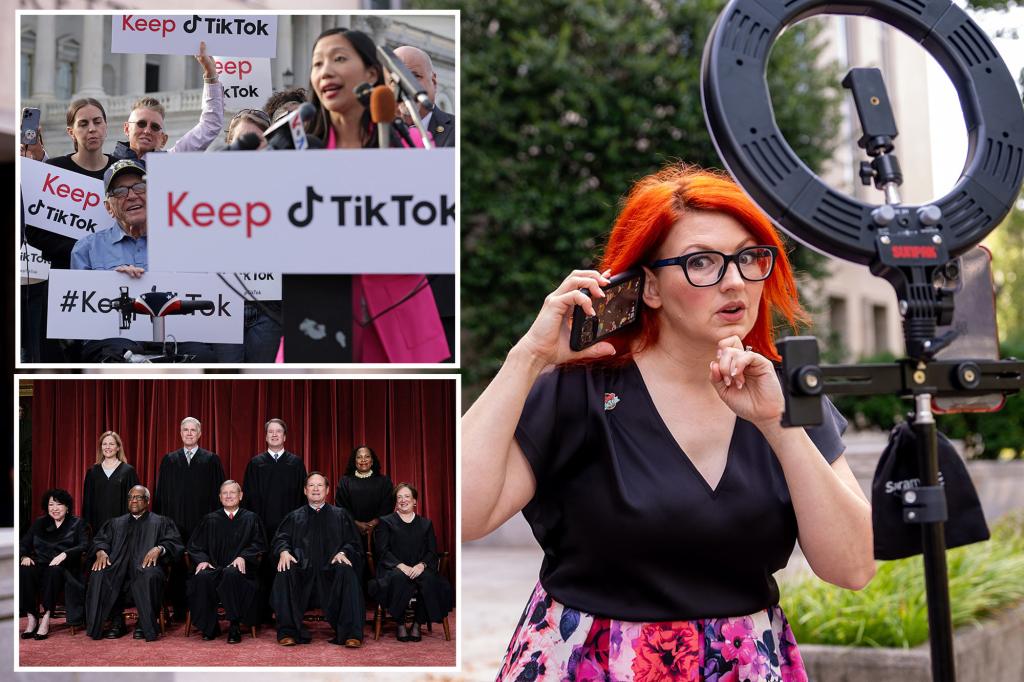The Supreme Court’s decision to review the constitutionality of the impending TikTok ban marks a critical juncture in the ongoing debate over national security, freedom of expression, and the regulation of technology. This case, slated for arguments on January 10th, just days before the ban’s scheduled implementation on January 19th, pits the legislative branch’s authority to protect national security against the First Amendment’s guarantee of free speech. The Justices will grapple with complex legal questions surrounding the extent to which the government can restrict access to a widely used platform like TikTok, citing potential national security risks posed by its Chinese ownership. The outcome of this case carries significant implications not only for TikTok and its millions of users in the US but also for the future landscape of online communication and the balance between security concerns and individual liberties.
At the heart of the dispute lies the contention that TikTok, owned by the Chinese company ByteDance, poses a national security threat. Concerns stem from the potential for the Chinese government to access user data, influence content, or engage in surveillance through the platform. Proponents of the ban argue that these risks justify the restriction on access, prioritizing national security over First Amendment concerns. They point to China’s national security laws, which compel companies to cooperate with the government’s intelligence gathering activities, potentially compromising user data and privacy. This argument rests on the premise that the potential harms associated with TikTok’s operation outweigh the value of free expression on the platform, particularly given the perceived vulnerability of user data to foreign government exploitation.
Conversely, TikTok and its supporters argue that the ban constitutes an unconstitutional infringement on free speech. They contend that the ban is overly broad, effectively silencing a platform used by millions of Americans for communication, entertainment, and political discourse. Furthermore, they argue that the government has not provided sufficient evidence to demonstrate a clear and present danger that justifies such a drastic measure. TikTok maintains that it has implemented robust data security measures and operates independently of the Chinese government, mitigating the alleged national security risks. Their argument emphasizes the importance of protecting online speech and the potential for the ban to set a dangerous precedent for government censorship of other platforms in the future.
The Supreme Court’s review will necessitate a careful examination of the evidence presented by both sides. The Justices will likely consider the specific mechanisms by which the Chinese government could potentially access or manipulate user data through TikTok, as well as the efficacy of the platform’s existing security safeguards. They will also need to assess the proportionality of the ban, considering whether less restrictive alternatives, such as data security regulations or independent audits, could adequately address the purported national security concerns without completely suppressing access to the platform. This evaluation will require a nuanced understanding of the technical aspects of TikTok’s operation, the complexities of US-China relations, and the intricacies of First Amendment jurisprudence.
The implications of the Supreme Court’s decision extend far beyond the fate of TikTok. The ruling will establish a precedent for how the government can regulate online platforms in the name of national security, shaping the future landscape of digital communication and the balance between security and free speech. A decision upholding the ban could embolden governments to restrict access to other platforms deemed to pose national security risks, potentially leading to a more fragmented and controlled internet. Conversely, a ruling in favor of TikTok could reinforce the importance of protecting online speech and limit the government’s ability to censor digital platforms without compelling evidence of a clear and present danger.
This case represents a crucial test of First Amendment principles in the digital age. The Supreme Court’s decision will have far-reaching consequences for the future of online communication, the balance between national security and individual liberties, and the power of the government to regulate the ever-evolving technological landscape. The Justices will need to navigate the complex interplay of national security concerns, free speech rights, and the unique challenges posed by globalized technology platforms. Their ruling will not only determine the fate of TikTok in the United States but also set a critical precedent for navigating the intersection of technology, national security, and the fundamental freedoms guaranteed by the Constitution.










